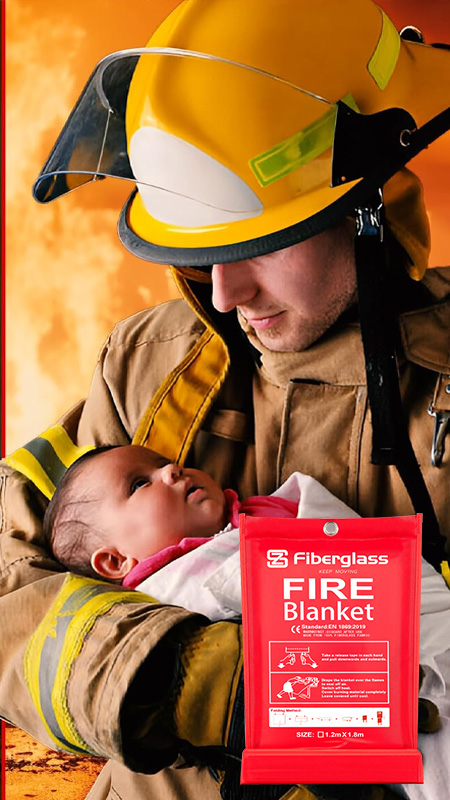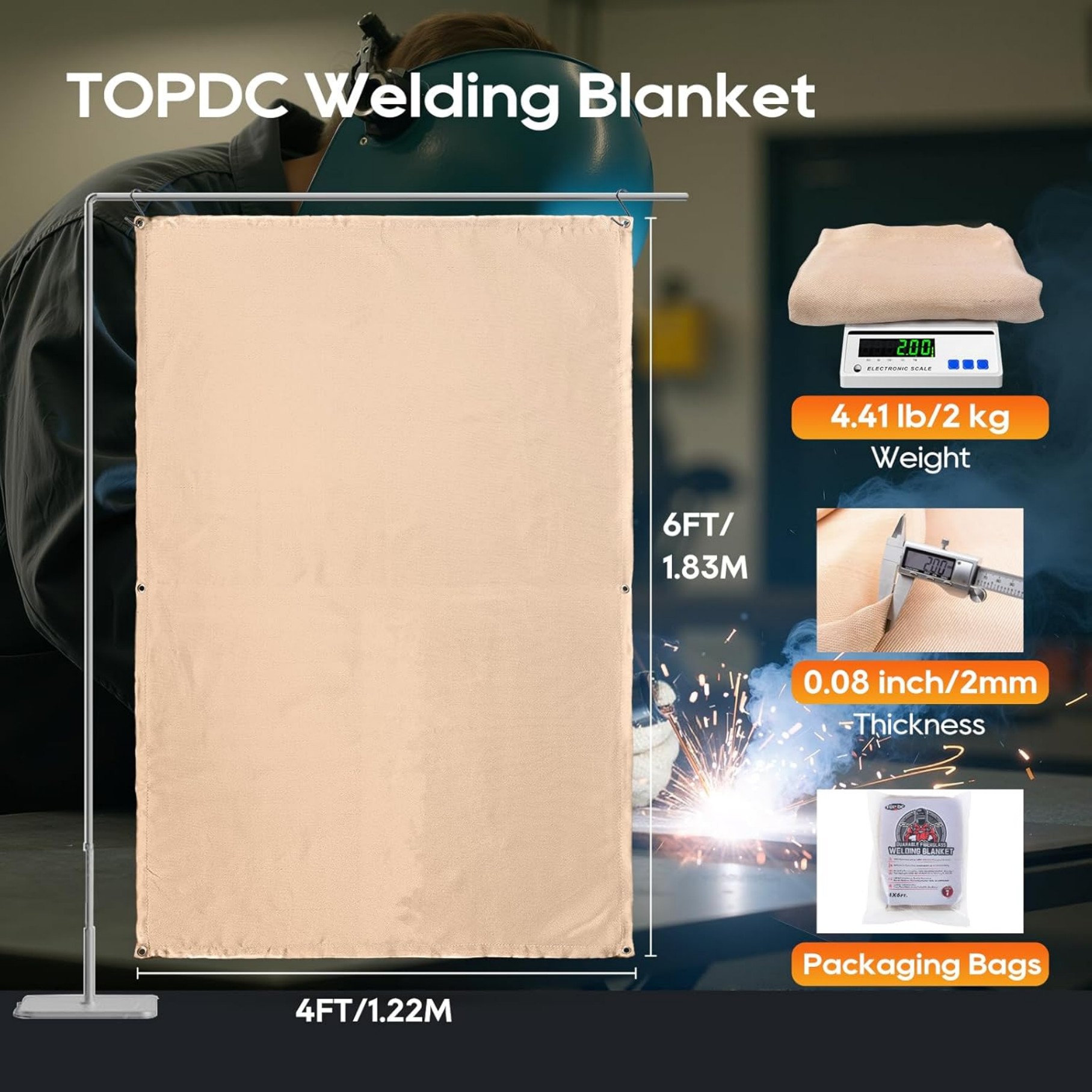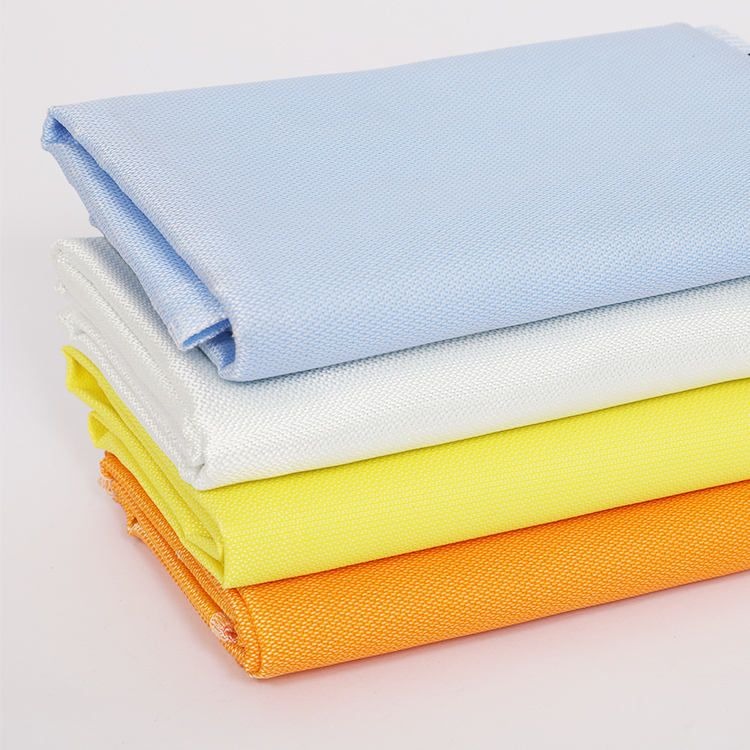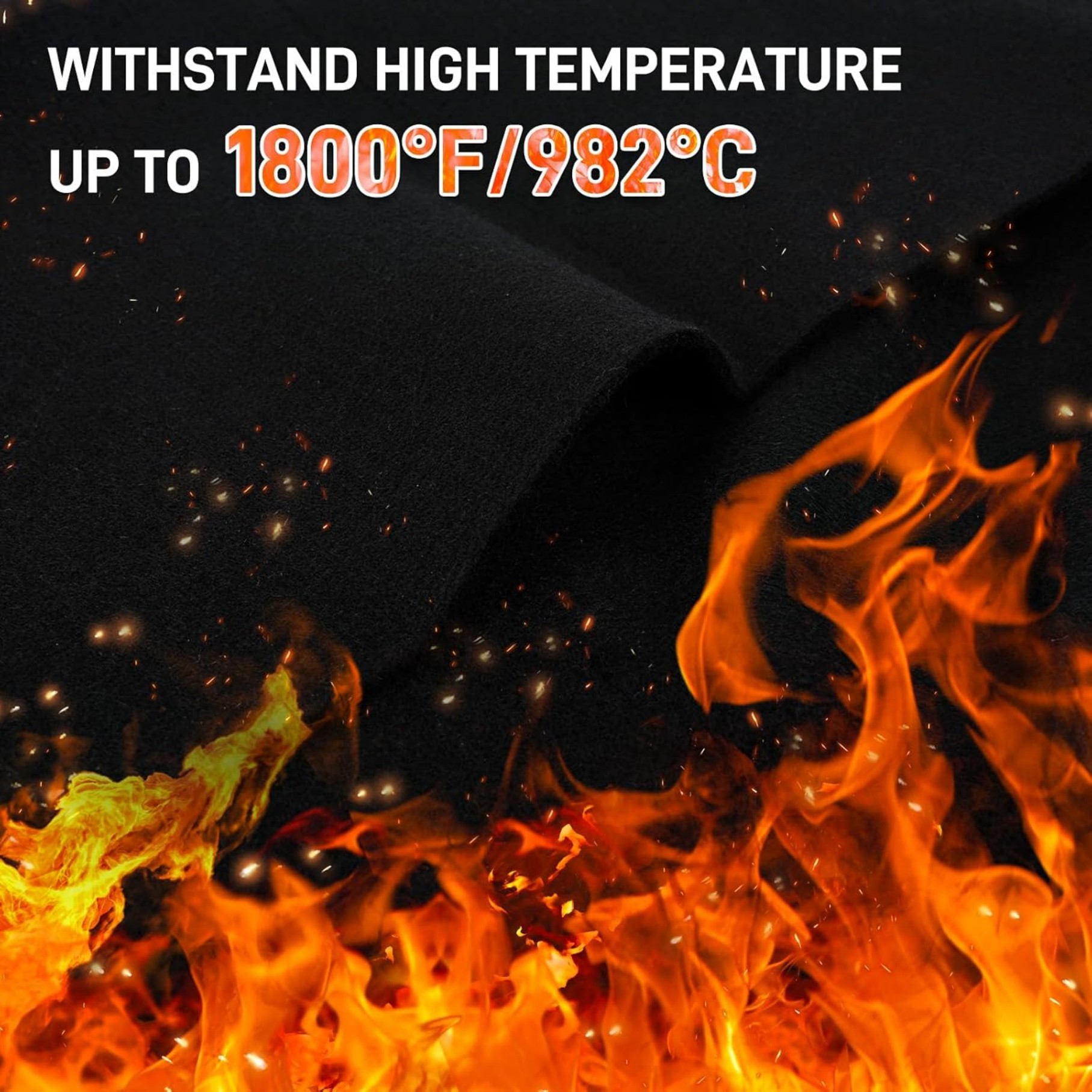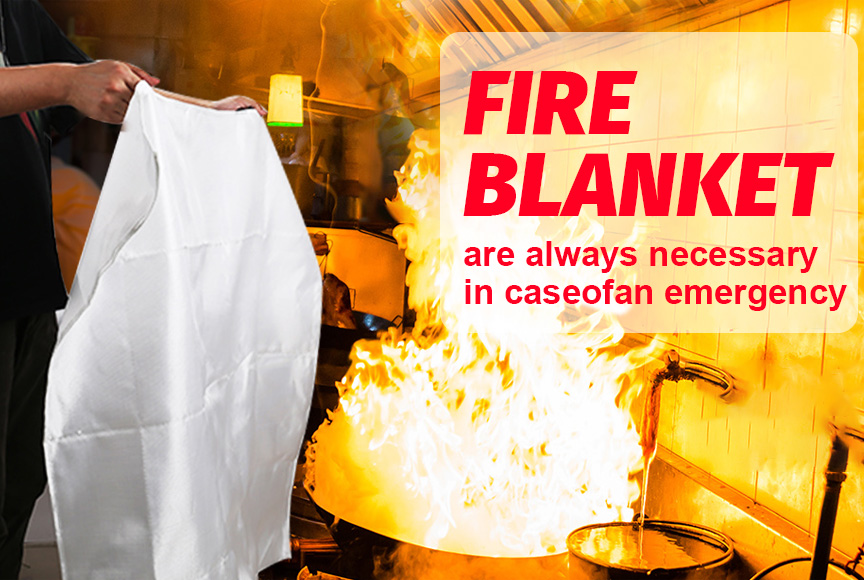Fire Blanket for Welding Size: How to Choose the Right Protection
Selecting the correct fire blanket size for welding is crucial for workplace safety. This guide explains standard sizes, material considerations, and proper usage to protect against sparks and flames during welding operations.
Why Fire Blanket Size Matters in Welding
When you're welding, sparks and molten metal can travel several feet. A too-small fire blanket won't provide adequate coverage, while an oversized one may be cumbersome. The right fire blanket for welding size creates a balance between protection and practicality.
Standard welding fire blankets typically come in these sizes:
- 3' x 3' (0.9m x 0.9m):For small bench welding or portable use
- 4' x 4' (1.2m x 1.2m):Most common size for general welding applications
- 6' x 6' (1.8m x 1.8m):For large welding projects or covering equipment
- 8' x 8' (2.4m x 2.4m):Industrial-scale welding operations
Factors Determining Your Ideal Fire Blanket Size
Consider these elements when choosing your fire blanket for welding size:
1. Workspace Dimensions
Measure the area where welding occurs. Your blanket should extend at least 12 inches beyond all sides of your work area. For mobile welding, choose a size that's easy to transport but still provides adequate coverage.
2. Welding Type and Heat Output
Different welding processes produce varying spark patterns:
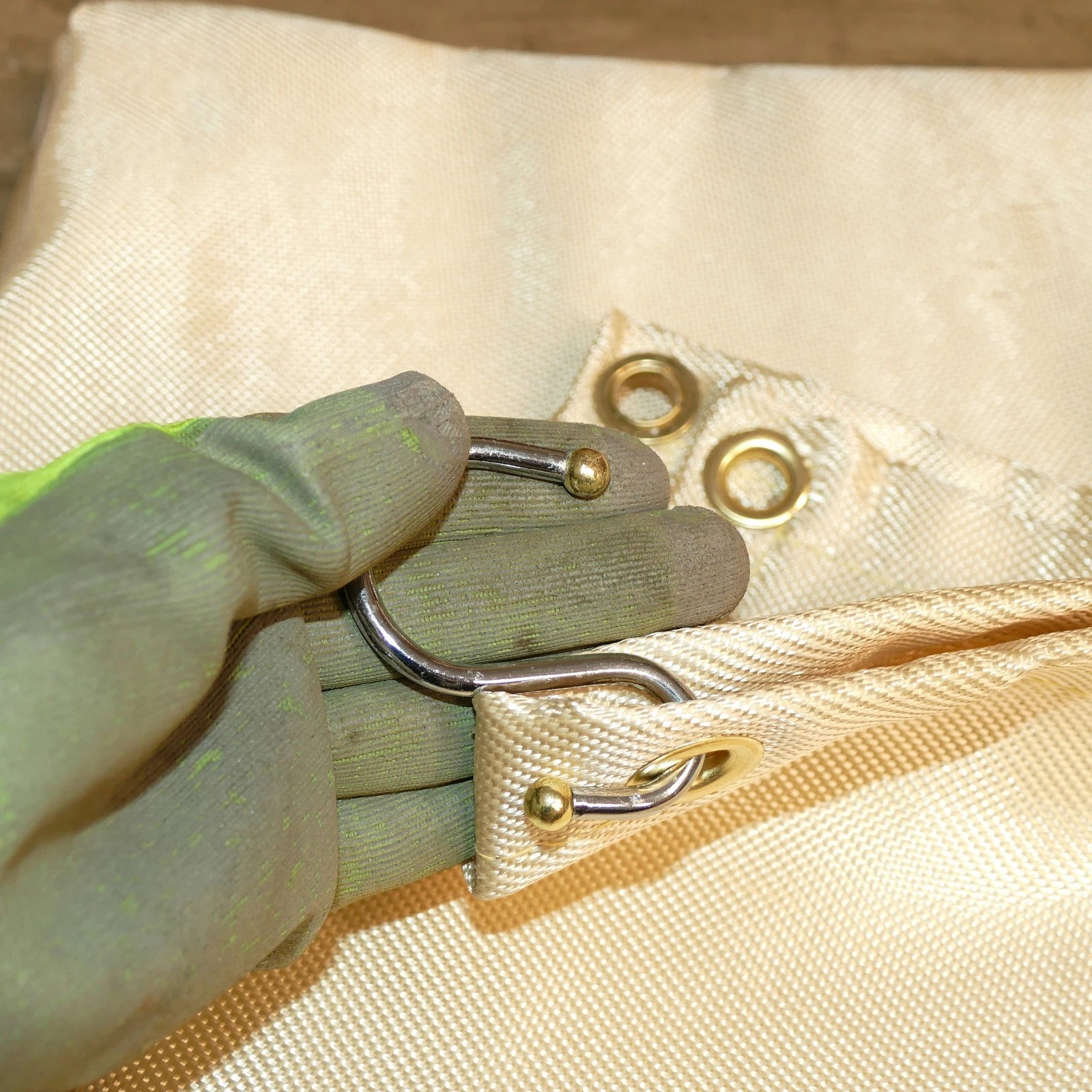
- MIG welding:Medium spark distance (3-4' blanket recommended)
- TIG welding:Minimal sparks (smaller blanket acceptable)
- Stick welding:High spark projection (larger blanket essential)
3. Material Thickness and Composition
Fire blanket effectiveness depends on both size and material. Fiberglass blankets are common, but for high-temperature welding, consider:
- Silica-coated fiberglass (up to 1000°F/538°C)
- Ceramic fiber blankets (up to 2300°F/1260°C)
- Multi-layer composites with reflective surfaces
Proper Use of Welding Fire Blankets
Simply having the right fire blanket for welding size isn't enough - you must use it correctly:
- Position the blanket to cover all flammable surfaces within the spark zone
- Secure edges with non-flammable weights or clips to prevent movement
- Overlap multiple blankets by at least 6 inches if needed
- Inspect for damage before each use - replace if holes or thinning appear
- Store rolled or folded in a dry, accessible location
Maintenance and Safety Checks
Your fire blanket's effectiveness depends on proper care:
- Clean with compressed air - never wash welding blankets
- Check for embedded metal particles that could conduct heat
- Replace every 2-3 years with regular use, or immediately after extinguishing a fire
- Mark inspection dates on the storage container
Beyond Size: Additional Safety Considerations
While choosing the correct fire blanket for welding size is vital, remember these complementary safety measures:
- Always wear appropriate PPE (gloves, apron, face shield)
- Maintain a clear 35-foot radius around welding areas
- Keep a Class D fire extinguisher rated for metal fires nearby
- Implement a "hot work permit" system for controlled environments
Special Applications: Custom Sizing Needs
Some situations require non-standard fire blanket sizes:
- Pipe welding:Long, narrow blankets (2' x 8')
- Automotive work:Contoured blankets for engine compartments
- Overhead welding:Extra-thick blankets with reinforced grommets
Many manufacturers offer custom-sized welding blankets for unique applications.
Conclusion
Selecting the proper fire blanket for welding size significantly impacts workplace safety. Consider your specific welding process, workspace dimensions, and material requirements when choosing. Remember that proper size, combined with correct usage and maintenance, creates an effective first line of defense against welding-related fires.


